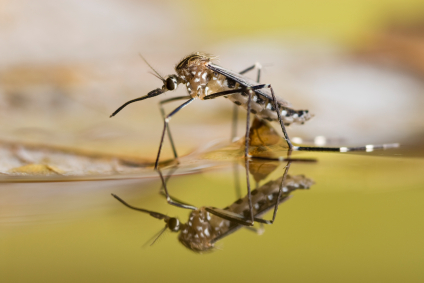
Profit and prosper with the best of Kiplinger's advice on investing, taxes, retirement, personal finance and much more. Delivered daily. Enter your email in the box and click Sign Me Up.
You are now subscribed
Your newsletter sign-up was successful
Want to add more newsletters?

Delivered daily
Kiplinger Today
Profit and prosper with the best of Kiplinger's advice on investing, taxes, retirement, personal finance and much more delivered daily. Smart money moves start here.

Sent five days a week
Kiplinger A Step Ahead
Get practical help to make better financial decisions in your everyday life, from spending to savings on top deals.

Delivered daily
Kiplinger Closing Bell
Get today's biggest financial and investing headlines delivered to your inbox every day the U.S. stock market is open.

Sent twice a week
Kiplinger Adviser Intel
Financial pros across the country share best practices and fresh tactics to preserve and grow your wealth.

Delivered weekly
Kiplinger Tax Tips
Trim your federal and state tax bills with practical tax-planning and tax-cutting strategies.

Sent twice a week
Kiplinger Retirement Tips
Your twice-a-week guide to planning and enjoying a financially secure and richly rewarding retirement

Sent bimonthly.
Kiplinger Adviser Angle
Insights for advisers, wealth managers and other financial professionals.

Sent twice a week
Kiplinger Investing Weekly
Your twice-a-week roundup of promising stocks, funds, companies and industries you should consider, ones you should avoid, and why.

Sent weekly for six weeks
Kiplinger Invest for Retirement
Your step-by-step six-part series on how to invest for retirement, from devising a successful strategy to exactly which investments to choose.
Everyone is scrambling to get their fingers on the pulse of the economy. When will it turn around? Have we seen the worst? The answers may not be as elusive as you might think.
You’ll find all sorts of clues in everyday life to help determine where the economy really stands. The racks of dry cleaners, for instance, may seem a bit more cluttered these days, and it’s true—many people are stalling an extra week before shelling out to pick up their clothes. And to paraphrase a famous quote from other troubled times, don’t shoot back into the market until you see the whites of their eyelids: Eyeliner sales have surged during the recession.
By Candice Lee Jones

Packed Theaters
When times get tough, people go to the movies. Box-office sales have increased in all of the last five recession years. According to the National Association of Theatre Owners, the number of movie tickets sold in the first quarter of 2009 increased more than 9% from last year.
People continue to fill theater seats, NATO says, because movies are one of the least expensive entertainment options out of the house. The average ticket price in 2008 was $7.18. So when the lines get shorter and ticket prices higher, will happy times be here again?

More Green Thumbs
The National Gardening Association finds that the number of households that will grow their own fruits, berries, vegetables and herbs this year is 19% higher than in 2008.
That makes 43 million gardeners in the United States this year. It’s fun and relaxing, no doubt, but 54% of the respondents say the prospect of saving money on groceries motivates them to till the soil.

More First Dates
Misery loves company, eh? Online dating service Match.com notices a pattern in its site activity during tough times. The fourth quarter of 2008 was its busiest in seven years (the site has been around since 1995). Match had a similar surge in late 2001, right after 9/11.
The company believes people are looking for someone with whom they can forget about money troubles—or share the pain. When the Dow Jones industrial average dropped to a five-year low last November, Match.com had its second-busiest weekend of the year.

Romance Novels Are Hot
The economy broke your heart. Time to bury your sorrows in a a romance novel? At least that’s what Harlequin, the giant romance-novel publisher, says is happening. In 2008, Harlequin’s sales were up 32% from the year before. In 2009, its sales are still rising.
The publisher credits the increase to its uplifting stories that offer a haven, and to the low prices of the books relative to other entertainment. Harlequin saw a similar sales increase during the recession of the early '90s. So if these books start piling up unwanted on the discount table at the bookstore, alongside all those mistimed guides to real estate riches, better news might be on the way.

Droopier Eyes I
America is all tuckered out. The 2009 Sleep in America Poll found that nearly one-third of Americans lost sleep because they were worried about their finances.
The poll, by the National Sleep Foundation, also found that 10% of those people tossed and turned, specifically worrying about their jobs. That's roughly the same percentage of Americans who are out of work.

Droopier Eyes II
Americans spent $10.3 billion in 2008 to endure 1.7 million cosmetic surgeries, which is 9% less than in 2007. The American Society of Plastic Surgeons cites the bad economy.
Without as much extra cash—and facing depleted retirement funds and much less home equity—fewer people can spend freely on plastic surgery. The number of liposuction procedures was down 19% in 2008 and tummy tucks were down 18%. Sure, you might get an appointment with a top surgeon without much of a wait now. But will you be able to get in so easily next year? Some would say, let's hope not.

Goopier Eyelashes
You’ve got that recession look in your eye. Total eye-makeup sales at supermarkets and drugstores were up 8.5% in the one-year period that ended on March 22.
In that period, more than $260 million was spent on eye makeup – in particular, eyeliner was up 9% and mascara almost 13%, the industry says.
The leading lipstick indicator – the past trend that lipstick sales rose in economic downturns as consumers settled for inexpensive luxuries – is not holding up. Lipstick sales are down 11%. But eye makeup has replaced lipstick as the indicator, devotees of this theory say.

Too Many Gators
What do 100,000 alligators have to do with the economy? They're all residents of Savoie’s Alligator Farm, one of the largest in Louisiana. Yet, the farm, which sells gator-skin hides to tanners who in turn sell them to luxury designers like Louis Vuitton, says it hasn't sold a single hide since November.
People just aren't buying alligator skin handbags and luggage. Yes, it's tough on the gator farmers. They're trying to keep the hides they already have in stock from spoiling. But it’s good news for alligators everywhere—if they only knew.

Dry Cleaning Pickups Are Down
The International Drycleaning and Laundry Institute is hearing gripes from many of its 5,000 members. Because of the poor economy, customers are visiting less frequently and leaving clothes longer. Customers who once came weekly now visit every two weeks, monthly customers visit bimonthly, and some people delay their pickups even longer to avoid the bill. This has been a staple indicator of hard times in the past.
We're not making these up. People really do look at such trends and patterns.

More Mosquito Bites
In Maricopa County, Ariz., huge numbers of foreclosed or abandoned homes have vacant swimming pools and unattended ponds. The stagnant waters – known as green pools -- are a hotbed for mosquito breeding, say local authorities. Crews have treated more than 4,000 green pools already in 2009. During the same period in 2007, before metropolitan Phoenix’s housing market collapsed, they had treated only 2,500. While most are on vacant properties, some also belong to residents who can't afford to maintain their pools and ponds.
Profit and prosper with the best of Kiplinger's advice on investing, taxes, retirement, personal finance and much more. Delivered daily. Enter your email in the box and click Sign Me Up.
-
 Nasdaq Leads a Rocky Risk-On Rally: Stock Market Today
Nasdaq Leads a Rocky Risk-On Rally: Stock Market TodayAnother worrying bout of late-session weakness couldn't take down the main equity indexes on Wednesday.
-
 Quiz: Do You Know How to Avoid the "Medigap Trap?"
Quiz: Do You Know How to Avoid the "Medigap Trap?"Quiz Test your basic knowledge of the "Medigap Trap" in our quick quiz.
-
 5 Top Tax-Efficient Mutual Funds for Smarter Investing
5 Top Tax-Efficient Mutual Funds for Smarter InvestingMutual funds are many things, but "tax-friendly" usually isn't one of them. These are the exceptions.
-
 Trump Reshapes Foreign Policy
Trump Reshapes Foreign PolicyThe Kiplinger Letter The President starts the new year by putting allies and adversaries on notice.
-
 Congress Set for Busy Winter
Congress Set for Busy WinterThe Kiplinger Letter The Letter editors review the bills Congress will decide on this year. The government funding bill is paramount, but other issues vie for lawmakers’ attention.
-
 The Kiplinger Letter's 10 Forecasts for 2026
The Kiplinger Letter's 10 Forecasts for 2026The Kiplinger Letter Here are some of the biggest events and trends in economics, politics and tech that will shape the new year.
-
 What to Expect from the Global Economy in 2026
What to Expect from the Global Economy in 2026The Kiplinger Letter Economic growth across the globe will be highly uneven, with some major economies accelerating while others hit the brakes.
-
 Amid Mounting Uncertainty: Five Forecasts About AI
Amid Mounting Uncertainty: Five Forecasts About AIThe Kiplinger Letter With the risk of overspending on AI data centers hotly debated, here are some forecasts about AI that we can make with some confidence.
-
 Worried About an AI Bubble? Here’s What You Need to Know
Worried About an AI Bubble? Here’s What You Need to KnowThe Kiplinger Letter Though AI is a transformative technology, it’s worth paying attention to the rising economic and financial risks. Here’s some guidance to navigate AI’s future.
-
 Will AI Videos Disrupt Social Media?
Will AI Videos Disrupt Social Media?The Kiplinger Letter With the introduction of OpenAI’s new AI social media app, Sora, the internet is about to be flooded with startling AI-generated videos.
-
 What Services Are Open During the Government Shutdown?
What Services Are Open During the Government Shutdown?The Kiplinger Letter As the shutdown drags on, many basic federal services will increasingly be affected.
